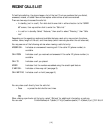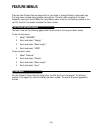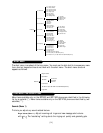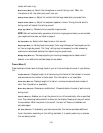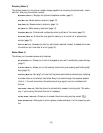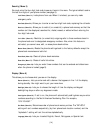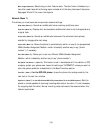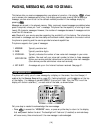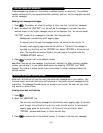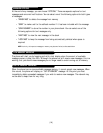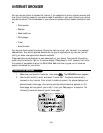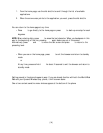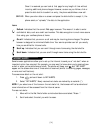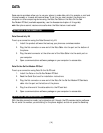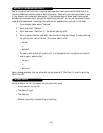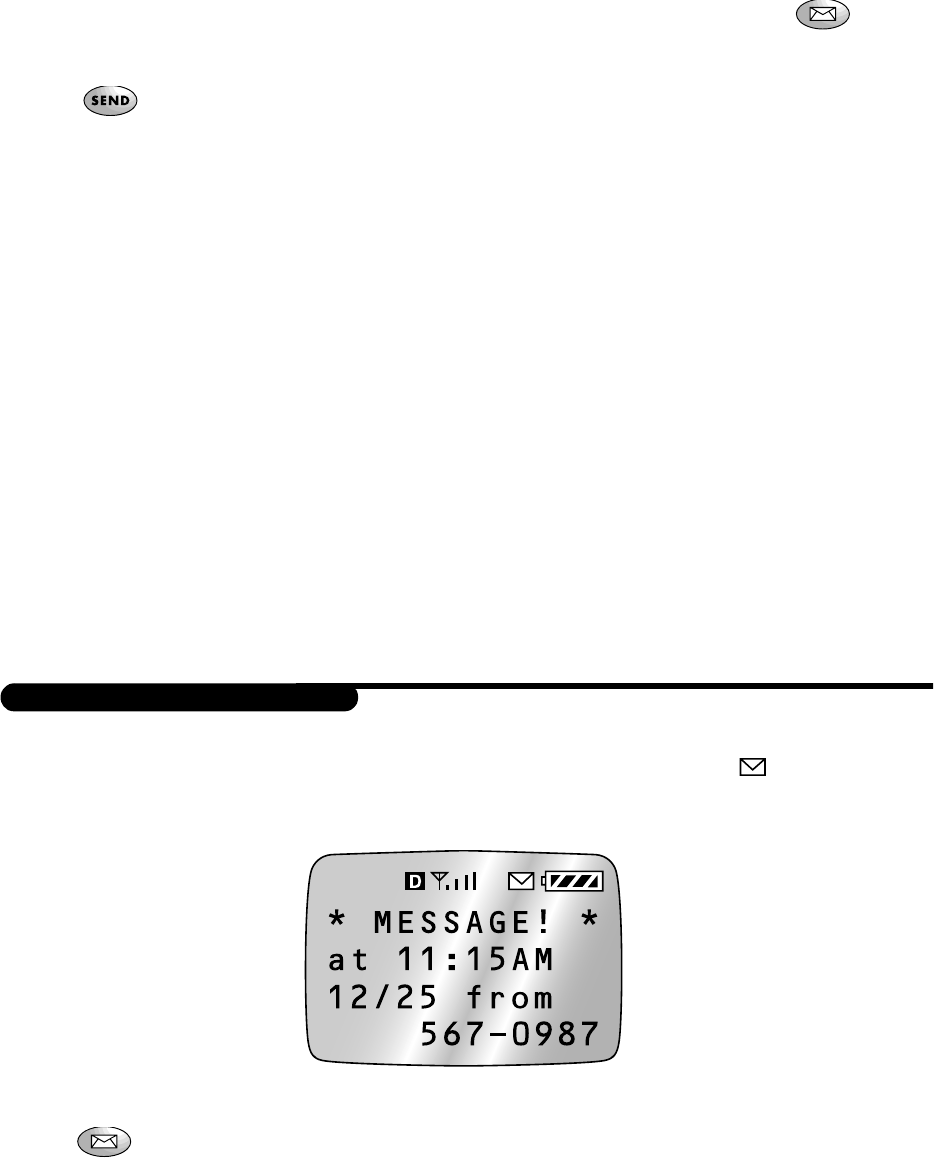
[26]
PAGING, MESSAGING, AND VOICE MAIL
This feature lets you receive messages when your phone is turned on. A single key, , allows
you to access your messages while a four-line display permits easy viewing. While reading a
message, you can return a call to the callback number provided in the message simply by
pressing .
Messages are stored in the phone’s memory. Older, previously viewed messages are deleted when
space is required, unless you “lock” a message. The phone has the capability of storing at least
twenty 30-character messages. However, the number of messages decreases if messages contain
more than 30 characters.
NOTE: Check with your service provider regarding the availability of this feature. The information
contained in a message, such as time stamp and callback number, depends on the mode in which
the phone is operating and the service provider’s network capabilities.
This phone supports four types of messages:
The phone will notify you of a new message by a display on the screen, four short beeps (if
enabled by the Message Beep setting, page 20), flashing backlight, and the icon at the top
of the display. If a message is marked URGENT, this icon will flash. Plus, the first line of the
display will contain asterisks (*) on each side of the label, as shown below.
Only one step is needed to acknowledge the new message.
➤ Press to access the “MESSAGES” menu, or press any other key to return to the display
that was present before the alert. The backlight will flash and (if enabled) a reminder beep
will occur every three minutes until the new message is acknowledged.
1. MESSAGE: Typically contains text.
2. PAGE: Typically contains digits.
3. VOICE MAIL
NOTIFICATION:
Typically indicates the number of new voice mail messages in your voice
mailbox. You must call your voice mail number to listen to these messages.
Follow your service provider’s directions for retrieving voice mail messages.
(Your service provider administers voice mail services.)
4. NET ALERT: A message set up on the Internet has been received. See page 31.
NEW MESSAGE ALERT



